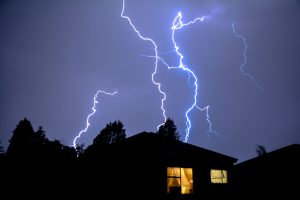
Cloud to Ground Electric Lightning Copyright: Marc Rossmann
By Naadiya Adams (@Miss_Naadiya)
South Africa’s lightning mortality rate sits four times higher than the global average, while climate change has given rise to the amount of lightning seen in South Africa.
Dr Maqsooda Mahomed, a postgraduate student at the University of KwaZulu-Natal, is inspiring hope through her research which is contributing to a first of its kind early lightning detection system. Rural communities who have seen an uptick in lightning will benefit from a lightning detection device which can alert communities before the storms hit.
Mahomed’s research forms part of her PhD – which she started in July 2018 – after she did extensive research on the water systems during her Masters.
According to Mahomed, there are certain areas within the country that could be considered “hotspots” for lightning, and more research is being done to identify these areas and put systems in place to alert for potential storms, she also mentioned that several communities could be alerted at once.
Mahomed detailed how the detection system functions,“The system is actually connected to a remote server, this remote server is actually what receives the data from the systems or sensors that are out there in the field. So my role as a researcher is to analyse that data and also to go on site and see that the system was running and that it was being maintained.”
The sensor is advanced enough to detect short-term tornados and other supersonic events says Mahomed. The lightning sensor can pick up optical and radio emissions of the flashes that fall between 8, 16 or 32km.
Mohamed’s research has been presented at various panels and forums and has received an amazing response, “The research was also, sort of headhunted by the United States National Lightning Council … talks are also underway with the United Nations and USA on how to upscale the system to benefit other areas in South Africa and other African countries as well.”
The project itself is set to transform lightning detection in South Africa and across the globe saving many lives in the process.
Listen to the full interview:







0 Comments